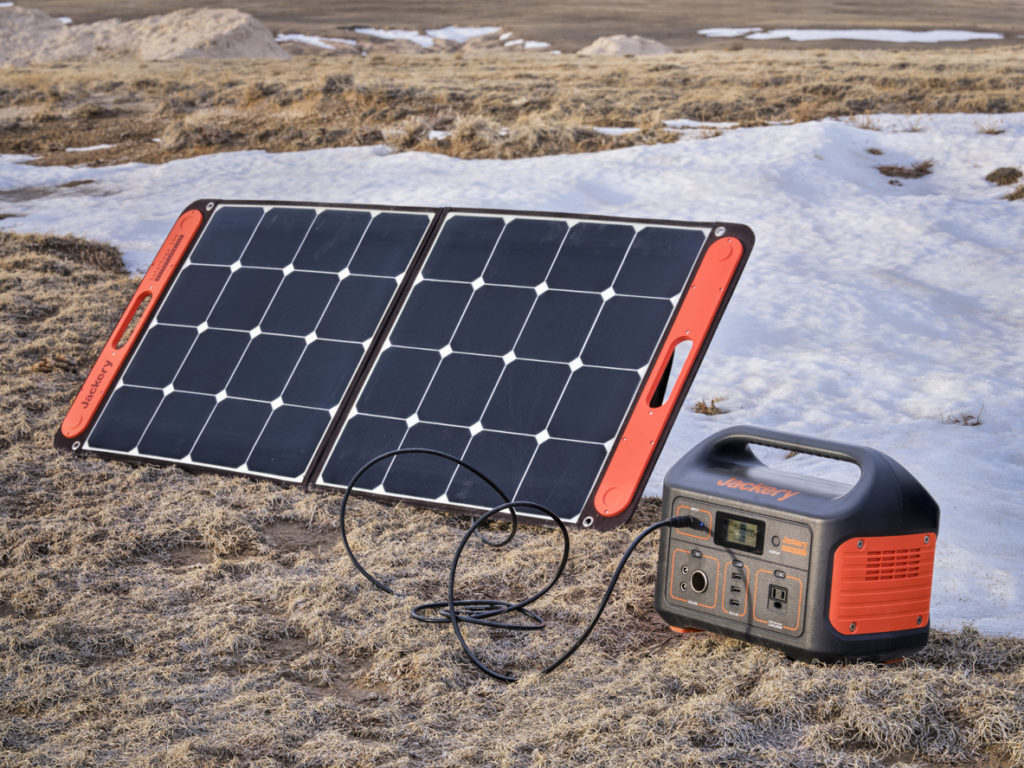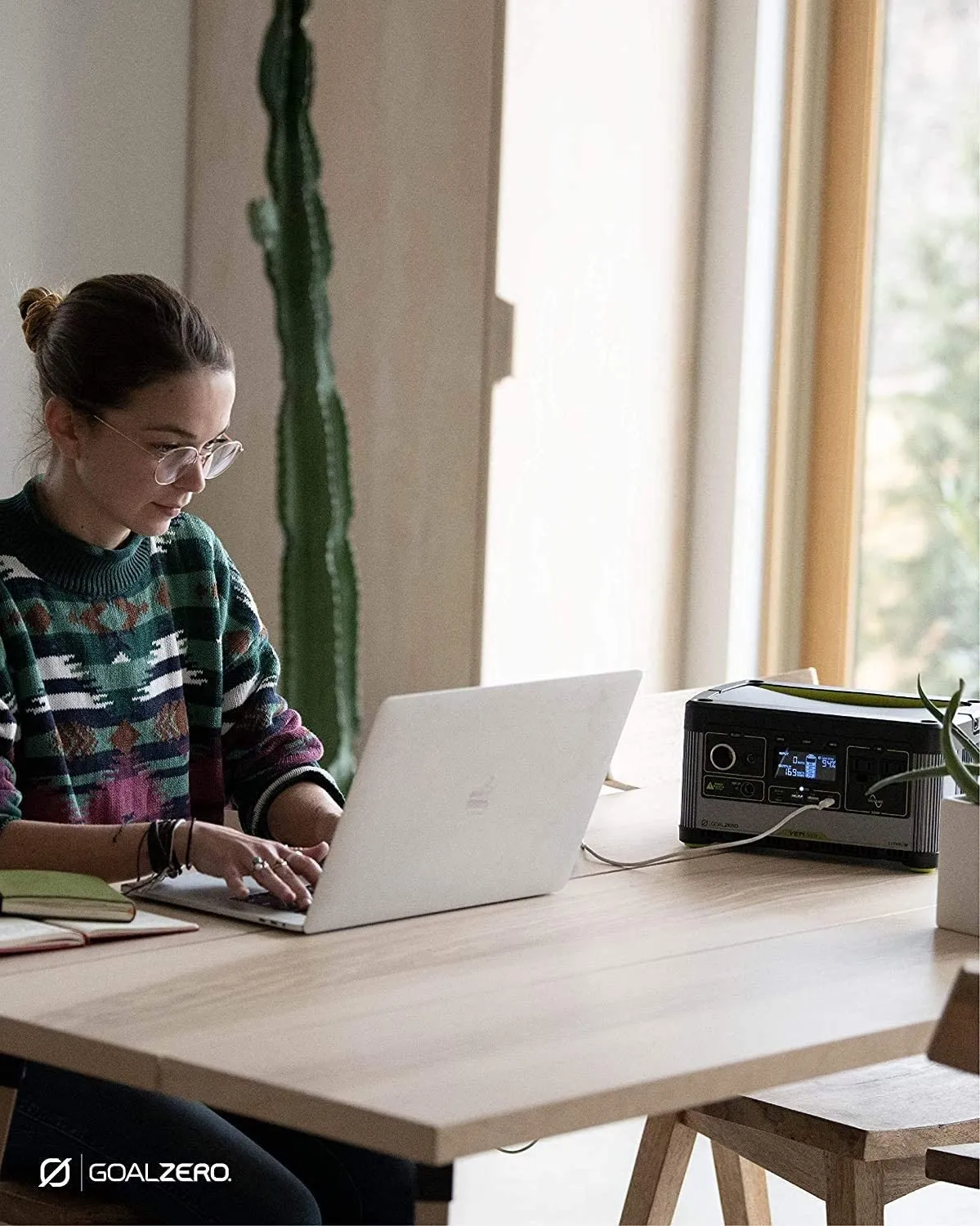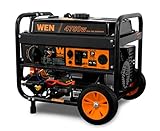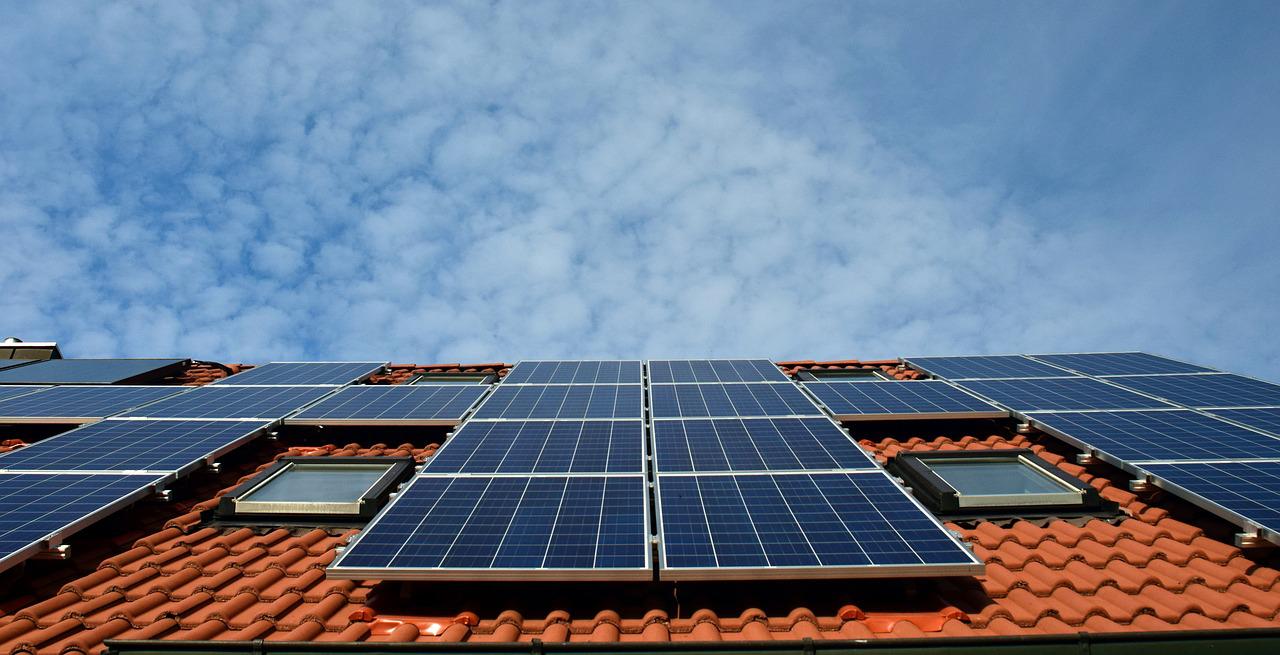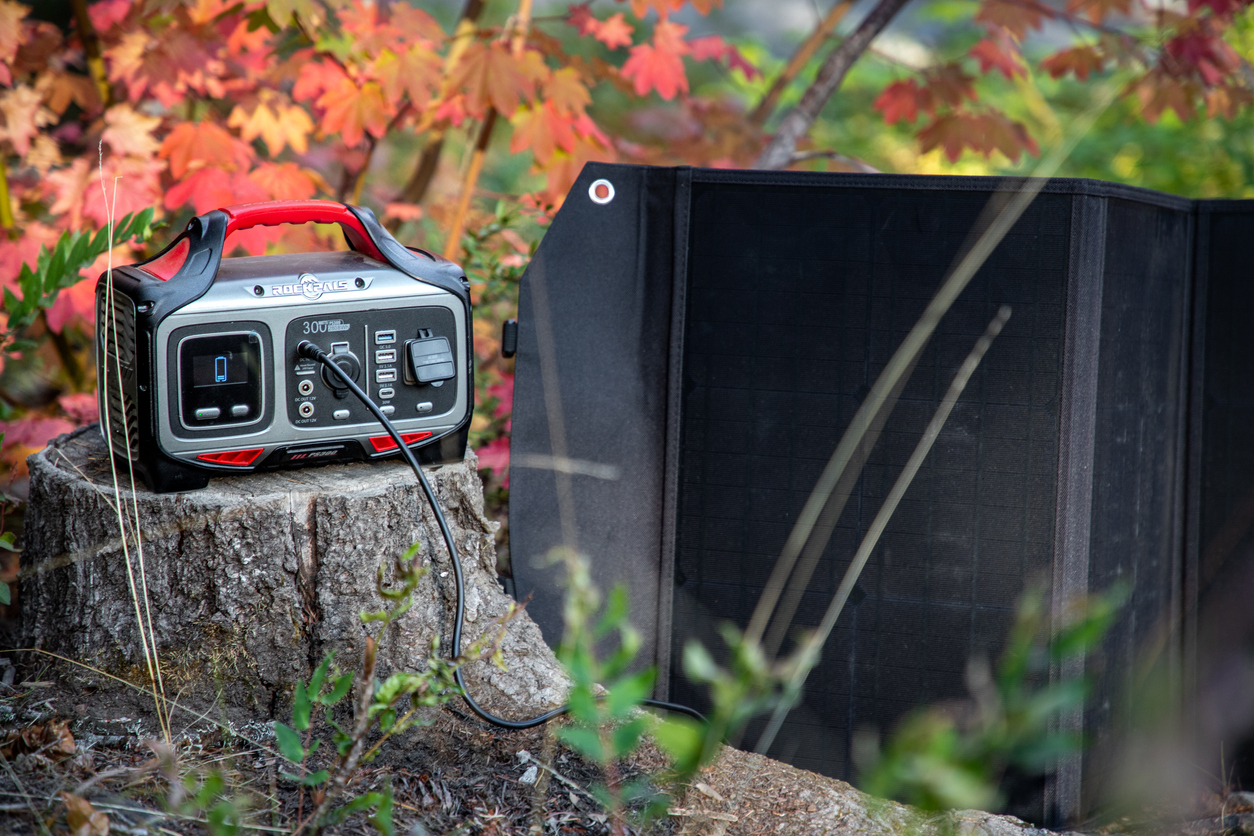Many homeowners aren’t sure if a solar generator can run an air conditioner. A lot of conflicting opinions on the topic have been voiced over the past few years, with some people saying solar generators are incapable of running air conditioners and others claiming that they can. We will examine precisely how a solar generator can run an air conditioner and offer advice on choosing the best ones for your needs. If you’ve ever wondered whether a solar generator can run an air conditioner, read on to find more about this type of power for air conditioners.
What Can a Solar Generator Do?
A solar generator has several capabilities. It can:
- Convert direct sunlight into electricity
- Be portable and lightweight, maing it ideal for emergencies such as hurricanes and earthquakes
- Serve as backup power if your main energy source gets interrupted during blackouts or natural disasters
Multiple units are usually connected, so you can use one unit to charge an electric vehicle (EV) at home. You can use the other unit to charge your phone or laptop computer at work if an internet connection is available through Wi-Fi or Ethernet cables installed on both devices.
The Best Solar Power Generator Buying Guide: the Top 5 Best Picks
What a Solar Generator Can’t Do
While a solar generator can produce electricity and thus generate a current, it cannot do so in a way that will directly power an air conditioner. While the current produced by a solar generator can be used to power an inverter, converting this direct current into alternating current causes most of the problems with using a solar generator to power an air conditioner.
The main issue with using direct current from a solar generator to power an air conditioner is that most inverters lack the ability to change direct current into alternating current fast enough for comfort. Therefore, your house will risk overheating anytime you use your portable solar-powered air conditioner. In addition, there isn’t enough time between when you turn on one appliance and when you turn on another to keep your air conditioner from stopping again due to coolant loss.
How Much Power Can a Solar Generator Put Out?
The power your solar generator can produce depends on how much current it can provide and how many amps are drawn from it by other devices. Most solar generators have 15A outlets, which means they can only handle 1,800 watts on their own (15Ax120V). That’s enough power to run some small appliances, such as a microwave or hair dryer. But if you want to run something bigger, you may have trouble finding the right sized outlet.
How Many Watts Do Air Conditioners Need to Start?
Air conditioners draw a lot of power, so if you want to run one with a generator, you’ll need to know how much power your generator can supply. The amount varies depending on the type of generator and how many watts it can supply. If your generator has a nameplate rating of 3,000 watts or higher, it should be able to run most air conditioners without any problem.
How Long Can a Solar Generator Run an Air Conditioner?
A good solar generator with a reliable battery capacity can run an ai conditioner for up to 16 hours. However, to ensure that your AC unit will work longer, it’s important to look at larger models with larger battery capacities. You also need to remember that not all solar generators are created equal: Some may be more reliable than others when running an AC unit over time.
Can You Use Solar Generators to Run Air Conditioning for an RV?
Yes, you can use solar generators to cool an RV. The first thing to understand is that while solar generators provide power, they’re not designed to run appliances. So, if you want the AC in your RV to be powered by a solar generator, then you’ll need to make sure that the generator has enough capacity and is powerful enough to cool your RV satisfactorily.
If you decide that this is worth pursuing, then there are a few things you’ll need to consider. First, it’s worth looking into what kind of inverter your RV uses. This will determine how much current the inverter will be able to handle. If it’s too low for your generator, then it might not work. You’ll also have to consider how much space you have in your RV for wiring up an inverter. You need to place it in a space where it won’t interfere with other things inside the RV or block access panels or vents.
What Are the Benefits of Using Solar-Powered AC in an RV?

You can install solar generators on RVs, campers, and trailers in about any orientation. If you have a roof-mounted solar panel system, they will provide more than enough juice to run your AC unit and charge up your battery bank. In addition, you can use them to power other appliances like lights and fans.
The main benefit of using a solar generator on an RV is that it will help save you money on gas, especially if there aren’t many trees around your rig. They also reduce emissions from the rig by eliminating the need for fossil fuel-powered generators.
Choosing a Portable Generator to Run Your Air Conditioner
If you want to run your air conditioner with a generator, you should consider a few things. The first is the size of the AC unit itself. The larger the unit, the more energy it will take to run. The size of your generator should match or be able to handle the power requirements of your AC unit.
Next, you want to consider the amount of power your generator can produce compared to that amount that your air conditioner requires. For example, if you have an 18,000 BTU AC unit that requires 5,000 watts of power, but your generator only produces 1,500 watts at full capacity, that’s not going to work out well for you.
Another thing to keep in mind is whether your generator has enough space for all its accessories and parts. If it doesn’t have enough space, there may be issues when trying to install everything properly so that the cooling system runs smoothly once installed.
- Switch between gasoline (4750 surge watts, 3800 running watt) and propane (4350 surge, 3500 running) with the simple turn of the selection dial
- Voltage easily goes from 120V to 240V, perfect for transfer switches and emergency backup
- Electric start powers the 224cc 4-stroke OHV engine with the turn of a key
- 4-gallon tank provides up to 11 hours of half load run time
- Includes two 120V GFCI outlets (5-20R), a 120V/240V NEMA 30A twist lock (L14-30R), a 12V DC cigarette-lighter-style plug, a bottle of oil, a wheel and handle kit, a 47-inch LPG connection hose, and a 2-year warranty
How Much Does a Solar Air Conditioning System Cost?
A solar-powered HVAC system can cost between $2,000 and $5,000 before installation fees, which run about $1,500 for a regular HVAC system that uses electricity from the grid. The price tag may seem high at first glance, but considering how much money you could save over time on utility bills it makes sense. For example, if you have an air conditioner in your home and use it daily, your utility bill will be higher than if you didn’t have one. This is because the more you use your AC unit, the more it costs to operate each month.
The federal government and some utility companies offer rebates for going solar to power your home’s cooling system. The Energy Star Rebates program is run by the U.S. Environmental Protection Agency (EPA) and U.S. Department of Energy to promote energy efficiency. Many rebates and special offers are available for heating and cooling elements throughout the country. Find out if you’re eligible for savings by visiting Energy Star’s Rebate Finder. To find out which other programs might help you save money with your solar-powered AC, check with your local utility company.
Are Solar-Powered Air Conditioning Systems Effective?
Solar-powered air conditioning systems are an effective way to cool your home. Some models can even be used to back up your regular air conditioning system if it goes offline for any reason. However, some limitations come with solar power.
First, because solar power depends on the sun’s availability, you may find yourself limited in the time you can use a solar generator. Solar generators will also not work in cloudy weather or when it’s raining heavily.
Solar generators have a limited range because they are powered by the sun. You can only use them within certain areas of your home or property. They might not work well if you have trees blocking sunlight from reaching them.
Types of Solar-Powered Air Conditioners
There are three major types of solar-powered AC units.
DC Solar Air Conditioners
The most common type of solar air conditioner is a DC unit. A DC unit uses direct current (DC) to power its fans and compressors. It converts the DC electricity generated by your solar panels into AC electricity. The inverter will be located in your home or business, using energy from your solar panels to power the cooling system.
There are many benefits to using a DC solar air conditioner instead of a conventional electric one. One of the most significant advantages is installing it on your roof without removing any walls or ceilings. This means you won’t have to worry about any damage caused by installation. Another advantage is that it’s more cost effective than installing an electric system because you don’t need to buy new wiring or pay installation costs.
However, there are some drawbacks as well. It takes more time and effort to install than installing an electric system because you have to connect wires from each panel and run them inside your house through walls and ceilings before they reach the inverter. However, if you do this correctly, there shouldn’t be any damage during installation.
AC Solar Air Conditioners
You first need to know that the AC solar air conditioners can run on both direct and alternating current. To ensure that the AC solar air conditioner you buy will work with your existing electrical system, make sure it has a built-in inverter.
The next thing you need to know about AC solar air conditioners is how much power they use. Most models will only draw about 20 amps per hour, so if you have a house with an average size kitchen and dining room and two bedrooms upstairs, these models will be able to keep everything cool without breaking a sweat.
Hybrid Solar Air Conditioners
Hybrid solar air conditioners are a great way to keep your home cool without using much energy. They work by using solar panels and air conditioning, so they can use the sun’s energy to power their cooling unit during the day and the power from your home’s electrical grid at night.
Because hybrid solar air conditioners can use renewable resources, they are much more environmentally friendly than traditional air conditioners. This means you won’t have to worry about this appliance’s impact on the planet.
However, hybrid solar air conditioners do have their drawbacks as well. One of these is that they can be expensive and difficult to install. Another drawback is that they take up more space than other air conditioning units. But if you’re willing to spend some time researching these issues before making your final decision, hybrid solar air conditioners can be a great investment for your home.
Desirable Features of the Best Solar-Powered Generators
Everybody wants their solar-powered generator to have these features.
Learn About Solar Power as a Renewable Energy Source
Portable Electric and Solar Power Stations: A Primer
Simple to Operate
The best solar-powered generator for you is one that doesn’t require you to have technical knowledge, so anyone can use it. In addition, it should be effortless to use and maintain, so you won’t have any trouble learning how to do it yourself if necessary.
Provides Clean Energy
Solar power is one of the most environmentally friendly ways to generate electricity. Solar panels produce no air pollution and use no fossil fuels for fuel processing, so they’re environmentally friendly. In addition, renewable energy sources power them, so you can cut down on the number of carbon emissions produced in the production and use of fossil fuels.
Noiseless Operation
With solar power, you don’t need to worry about noise pollution, and you can also use it in places with no electricity. This means that you can run your generator at night without worrying about waking anyone up.
Convenience
Solar panels are also incredibly convenient, as they don’t need to be charged from a power outlet or battery. This makes them ideal for emergency preparedness. Plus, since they don’t need to be charged or plugged into an outlet, you can carry them around wherever you go.
Long Working Life
Solar-powered generators have a long working life of 15 to 20 years. This means you can save money on electricity bills by using one of these generators.
When running AC units on solar generators, it’s always a matter of being able to match the power consumption required to ensure that it remains within the self-consumption capacity of the solar generator. Once you know the power consumption you plan to have, you can make the necessary adjustments to use a solar generator for your air conditioner.
